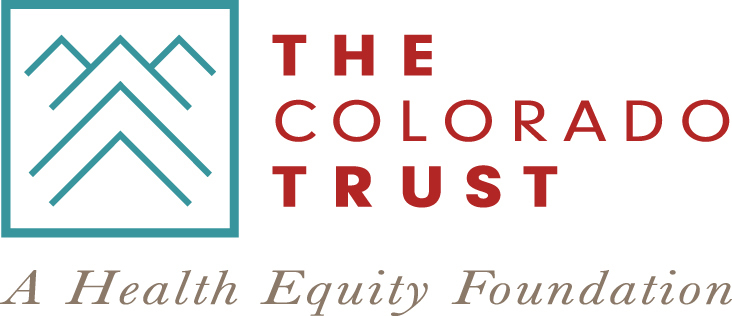Conferences provide an opportunity for people with shared professional interests or backgrounds to come together to share information, build relationships and determine priorities for the future. Funders can support conference attendance as a form of collective capacity building among grantees.
Capacity building has been defined as the “process of building and strengthening the systems, structures, cultures, skills, resources, and power that organizations need to serve their communities” (Nishimura et al., 2020). Offering capacity-building support as a complement to grant funding is a recommended practice within philanthropy (GEO, 2016), particularly when the capacity-building opportunity is identified or co-created by grantees (GEO, 2021).
Context
The Colorado Trust’s Health Equity Advocacy (HEA) strategy (2014-20) funded a cohort of 18 organizations to build a field of advocates who are prepared to promote health equity policy solutions in changing political environments. Strategy funds supported representatives from grantee organizations to attend three conferences over three years: Facing Race in Atlanta, Georgia in 2016; Othering & Belonging in Oakland, California in 2017; and the Equity Summit in Chicago, Illinois in 2018. These conferences were selected in partnership with grantees because their themes aligned with one or more of the core focus areas of the HEA field-building strategy, including:
- Communications and messaging,
- Community leadership and development,
- Policy advocacy and
- Racial equity
Conference grants ranged from $1,500 to $2,000 per person and covered registration, travel, food and lodging. Grants to rural organizations were slightly larger given higher travel expenses.
Survey Results
All conference attendees were asked to complete a post-conference survey to understand the extent to which their participation in the conference increased their knowledge, capacity and motivation to further their field-building efforts. Survey results indicated that these conference grants were worthy investments, as they increased understanding of and commitment to racial equity and increased attendees’ capacity to talk about equity and field building. Lower levels of agreement were reported regarding forming meaningful connections and developing concrete action steps or strategies. However, a majority of participants still agreed that the conferences supported them in these areas. In the one survey it was asked (for people attending Facing Race), all attendees indicated they would attend another conference with financial support from a funder.
Considerations
Grantees’ learnings from conferences will likely reflect the goals that are most salient to them at the time. For example, after Facing Race (the first conference attended), many grantees referenced a need for additional training and education for themselves and other cohort members. After the Othering & Belonging conference a year later, proposed actions focused on the need to include others, especially marginalized groups, in the equity movement and to have more intentional conversations about equity. After the Equity Summit, the last conference attended, many grantees referenced the need to share their learning and train others as future action steps.
This trajectory indicates development of cohort members in their field-building goals and capacities over time and suggests that conferences may be of most benefit to individuals early in a collective effort. Indeed, representatives from partner organizations not directly funded through the HEA strategy but invited to attend the Equity Summit by HEA grantees reported slightly greater benefits than representatives from HEA organizations. A final consideration is that while the funder can cover financial costs associated with conference attendance, the grantee organizations have to absorb the staffing costs associated with having one or more employees out for the duration of the conference.
Recommendations
We offer the following recommendations to other funders interested in supporting conference attending as a form of capacity building for grantees.
With grantee partners:
-
Identify which conferences align with current strategy goals and support grantee attendance, if resources allow. Representatives from HEA grantee organizations largely agreed that conference attendance increased their knowledge, understanding and capacity in a variety of areas. Financial and human resources costs of attendance should be weighed against these potential benefits.
-
Thoughtfully consider when conferences might be of most benefit. Our experience suggests that conferences are a worthwhile investment to deepen individual understanding and create or confirm a shared commitment or goal early in a strategy. Later on, they might present opportunities to share learnings, make desired connections or develop skills to bring others into alignment with the strategy or organizational goals.
-
Create reflection spaces before and after the conference in order to maximize potential learnings. Working with grantee partners to identify hopes and desired outcomes before the conference may result in identification of relevant sessions and targeted networking opportunities. Providing dedicated reflection spaces after the conference will allow attendees to create concrete next steps and actions.
-
Support ongoing training after the conference, preferably in smaller or local contexts. Conference attendees supported through the HEA strategy referenced this need as a means of building off the learnings and momentum obtained at the conferences. Near the end of the HEA strategy, targeted capacity building in core field-building areas was noted as more critical to the cohort’s accomplishments than were the national conferences.
Supporting grantee partners to attend conferences aligned with strategy goals is one way to support grantee organizations in increasing skills, resources and power to serve their communities. This form of capacity building holds promise for deepening individual understanding, aligning around a shared goal and building momentum for future activities.
Contact
Please contact Felisa Gonzales, Evaluation and Learning Manager, by email at felisa@coloradotrust.org or by phone at 303-539-3110, with any questions about this post or the Health Equity Advocacy strategy.
References
- Grantmakers for Effective Organizations (GEO). (2016). Strengthening nonprofit capacity: Core concepts in capacity building. https://www.geofunders.org/resources/strengthening-nonprofit-capacity-710.
- Grantmakers for Effective Organizations (GEO). (2021). Reimagining capacity building: Navigating culture, systems and power. https://www.geofunders.org/resources/reimagining-capacity-building-navigating-culture-systems-power-1340.
- Nishimura, A., Sampath, R., Le, V., Sheikh, A.M., and Valenzuela, A. (Fall 2020). Transformational capacity building. Stanford Social Innovation Review. doi: 10.48558/b2f5-0904.




